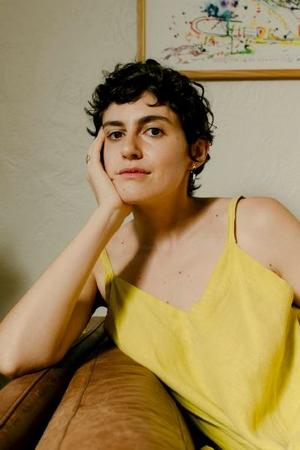Author Biography | Interview | Books by this Author | Read-Alikes

How to pronounce Zoë Schlanger: SHLANG-er
Zoë Schlanger is a staff writer at the Atlantic, where she covers climate change. Her work has appeared in the New York Times, the New York Review of Books, Time, Newsweek, The Nation, Quartz, and on NPR among other major outlets, and in the 2022 Best American Science and Nature Writing anthology. A recipient of a 2017 National Association of Science Writers' reporting award, she is often a guest speaker in schools and universities. She lives in Brooklyn, New York.
Zoë Schlanger's website
This bio was last updated on 05/03/2024. In a perfect world, we would like to keep all of BookBrowse's biographies up to date, but with many thousands of lives to keep track of it's simply impossible to do. So, if the date of this bio is not recent, you may wish to do an internet search for a more current source, such as the author's website or social media presence. If you are the author or publisher and would like us to update this biography, send the complete text and we will replace the old with the new.
Q. What, to you, is THE LIGHT EATERS about?
A. The most interesting part of this book for me is the undercurrent of a question that runs through it: What would change if we began to regard plant life as sentient in its own way? Everything suddenly becomes quite alien. That's what happened for me in reporting this book: being outside—or at home with my houseplants—became an encounter with alien life-forms. Once I pulled back the veil on what they were truly doing, the natures of their idiosyncratic and totally active lifestyles, it became impossible to regard them as passive objects. Plants became subjects, full of desires and cunning strategies. My experience as a human on earth also fundamentally shifted; I began to be able to see myself as part of a system that relies on other organisms— especially plants!—for my continued survival in a very literal, tangible way. It opened me up to a different ethical orientation as well. I had to ask myself how I should move through the world if I know that plants have the capacity to feel, to remember, to count. It's an astounding reorientation, something I'm still working on understanding today. It's both an urgent and deeply rewarding...
A few books well chosen, and well made use of, will be more profitable than a great confused Alexandrian library.
Click Here to find out who said this, as well as discovering other famous literary quotes!
Your guide toexceptional books
BookBrowse seeks out and recommends the best in contemporary fiction and nonfiction—books that not only engage and entertain but also deepen our understanding of ourselves and the world around us.